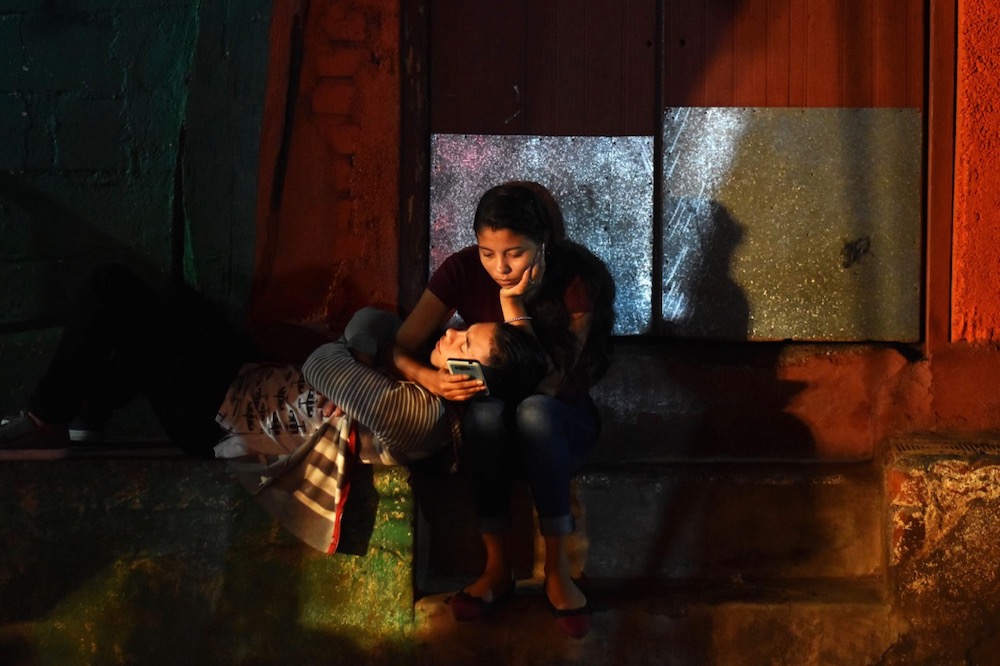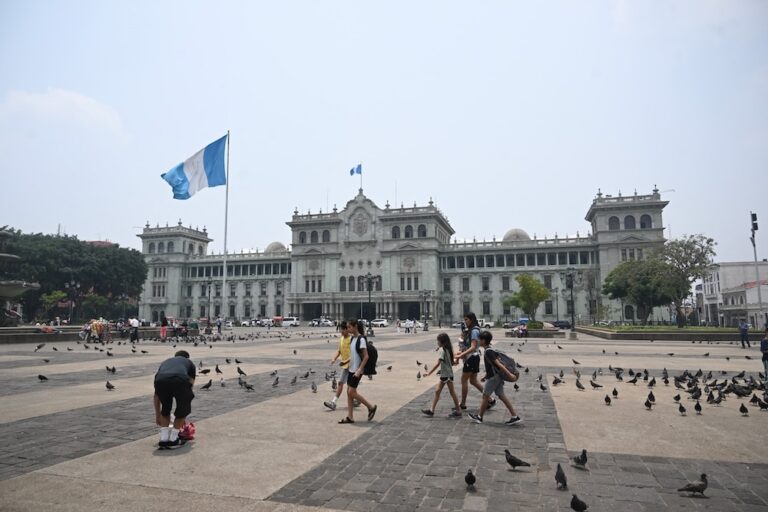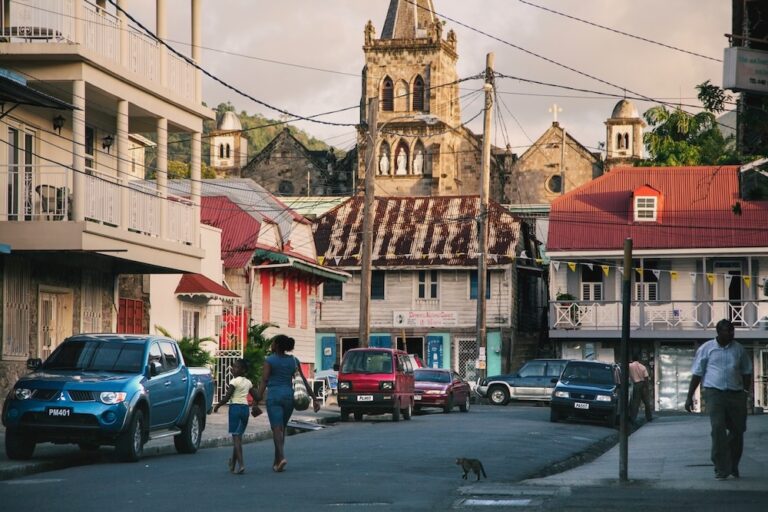Surveillance in the Americas: A special round up produced by IFEX's Regional Editor Laura Vidal, based on IFEX member reports and news from the region.
Digital surveillance continues to spread in the region, limiting the right to privacy and curtailing basic freedoms in civic space, while threatening the security of journalists and human rights defenders. In many cases, new technologies are used by authoritarian regimes to invade citizens’ privacy, impacting migrant communities, journalists, rights defenders, and political opponents. This practice also crosses borders. In the Americas in particular, tools developed and deployed with the justification that they are needed to fight crime and promote safety are failing to comply with basic human rights standards, while initiatives to build more “intelligent” cities are turning into invasive systems that collect and exploit data without sufficient transparency.
Pegasus: A violent – and still out of control – form of surveillance in the hands of governments
A year has passed since a study from Amnesty International revealed how governments around the world have been using Pegasus spyware to spy on human rights activists, political leaders, journalists and lawyers, but no concrete action – other than a bill recently proposed in the United States aiming to penalize US companies that purchase spyware developed abroad – has been taken to place a moratorium or regulate its use in any meaningful way, something that has been called for by the Inter-American Commission on Human Rights (IACHR) through its Special Rapporteur.
Among the cases brought to light early this year is that of award-winning Central American news outlet El Faro, thanks to an investigation led by a coalition of digital rights organisations (among them Access Now, Citizen Lab and Social TIC). The IACHR has also expressed deep concern and demanded an investigation from the government of El Salvador.
IFEX members ARTICLE19 Mexico and Central America and ARTICLE19 Brazil, Fundación Karisma, Derechos Digitales, R3D and EFF signed a joint statement at the time, calling on international and regional bodies to take urgent actions.
Of the 35 people confirmed to be under surveillance in El Salvador, almost half were women. In these cases, the effect of surveillance took on distinct nuances. According to testimonies given by individuals targeted by Pegasus, collected and published by Access Now, the kind of intimidation, harassment and defamatory language used against them are often sexual in nature and relate to their personal lives and relationships. The information collected about women through surveillance may be used to attack their image and dignity, weaponizing an already violent atmosphere against them, not to mention the psychological effects of having their right to privacy violated.
This form of gender-violence through digital surveillance was also highlighted in April 2022 by the UN Special Rapporteur on the promotion and protection of the right to freedom of opinion and expression, pointing to the fact that in some countries women were “disproportionately targeted”.
The cases identified in Central America are far from unique. Mexico is another well-known case highlighted by IFEX members ARTICLE 19 and R3D Mexico, in which over 15,000 Mexican phone numbers were reported being surveilled with Pegasus – although spyware is not the only method used as the state tightens its grip on its citizens. Those targeted included human rights defenders and family members of the 43 students kidnapped and disappeared in Ayotzinapa in 2014, and journalist Cecilio Pineda Brito, who was killed in March 2017, a few weeks after being targeted with the spyware, according to reports.
Venezuela: Surveillance over an already limited communication environment
In late June 2022, a transparency report from Spanish provider Movistar – parent company of Movistar Venezuela – revealed that the company had intercepted over 20% of the telephone and internet lines of their Venezuelan clients. The report revealed that these interventions had taken place under orders and requests from the Venezuelan government. In total, Movistar Venezuela intercepted a total of 1,584,547 lines in 2021. According to local organisation Ve Sin Filtro, not only calls, but also text messages (SMS) were monitored to determine the location of a user through the use of their cellphone or by monitoring their traffic online.
Moreover, actions beyond monitoring activity were carried out. In fact, 997,679 lines provided by Movistar Venezuela were the object of requests for metadata in order to retrieve the name of the user, data to identify the origin and destiny of a call (including phone numbers and usernames to access the internet), date and time of communication, type of communication and identities of devices, and also the location of the device itself.
The report points to the fact that these requests tend to come from organisms such as the Public Ministry, the Office of Criminal, Penal and Scientific Investigations (Spanish acronym, CICPC) and other military and police organisms. Ve Sin Filtro highlights that there is no mention whatsoever of court orders or judicial authorizations.
These and other cases of authoritarian governments harassing and persecuting people and political opponents through technology should sound alarms, especially as digital repression beyond borders continues to rise globally and many journalists and activists flee their countries to safety, and to continue their work from abroad.
You say protection, I say surveillance…
In recent years, technology has prevailed as the go-to solution for fighting crime in the region. Nevertheless, this tendency to technosolutionsism by governments in the region has been widely criticised, particularly for the lack of complex analysis needed to ensure that the use of these technologies is consistent with respect for human rights. One of the struggles at the moment comes as a result of sustained efforts by governments to install massive surveillance and face recognition systems, without public consultation or participation, using technology developed outside of the region, with little understanding of the context of use.
According to a recent report led by IFEX member ADC, surveillance technology using biometric data continues to spread in Argentina, Brazil and Ecuador. The report also highlights companies behind these tools that they consider “dangerous”, and the policies and practices governments are putting in place through which people’s rights are being undermined. ADC notes that the use of these technologies continues to spread, and stresses how vital it is that the general population be informed and aware of these initiatives, as well as their problematic applications.
In other cases, allegations and investigations into the use of technology in public spaces and the abusive collection of data have resulted in small victories. This was the case in Peru, where local organisation HiperDerecho together with Access Now led a complaint that ended with the municipality of La Victoria being penalised on 14 July by the national authority of data protection for processing personal data obtained through security cameras.
Another development seen as a win for privacy took place in two of the major cities of the continent: São Paulo, Brazil (in March) and Buenos Aires, Argentina (in April). Local judiciaries ruled against the use of facial recognition, giving hope to activists that they may see similar decisions take place in the rest of the region.
The United States provided a dramatic example of how radical changes in legislation can prove privacy advocators right. The reversal of the ruling known as “Roe v. Wade”, which eliminated the right to abortion as a constitutional right, sounded alarms about the use of reproductive data online. On this front, IFEX member EFF has been pushing for the approval of the “My Body My Data” bill, aiming to “protect the privacy and safety of people seeking reproductive health care” while following an investigation led by three members of Congress (launched in July) on the indiscriminate harvesting and selling of data by data brokers.
Public digital surveillance has been on the radar of several organisations based in the Americas in recent years, and the focus of numerous awareness campaigns and intensive research that provide a good foundation for current and future advocacy. To mention just a couple – IFEX member Derechos Digitales has published reports on the use of algorithms to surveil urban areas and the impacts of surveillance beyond privacy in the cases of Venezuela and Bolivia. And in 2021, Derechos Digitales joined a number of organisations, among them IFEX members including Fundación Karisma, ARTICLE19 Mexico and Central America, R3D, and FLIP, to call attention to the use of cyber patrolling, which is the surveillance of people’s behaviour online by police and other authorities.
In brief
Violence continues in Haiti: Hundreds of people have fallen victim to a new wave of gang violence that has “deepened the humanitarian, political, and human rights crisis in the country”, according to Human Rights Watch. The organisation is calling on governments in the US and in Latin American countries to stop expelling people back to the country and urgently support efforts by local civil society groups.
IFEX-ALC is urging parliament in Uruguay not to repeal the current media law: if passed, the bill under discussion could seriously affect freedom of expression, bring back provisions and limitations dating back to the country’s dictatorial period and result in a direct departure by the Uruguayan state from its international human rights commitments.
The Ortega-Murillo regime continues its war on independent media and civil society in Nicaragua. By early July, over 800 groups and organisations had been forced to close down in the country, while the newspaper La Prensa had its offices raided by police and some of their staff detained later in the same month.



